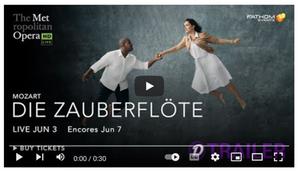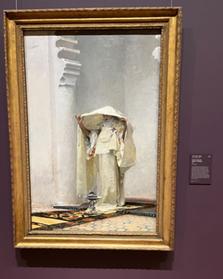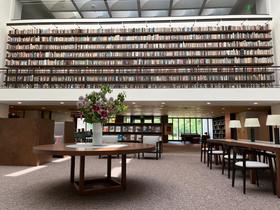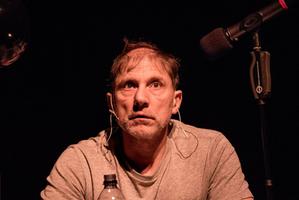
And so he did. Although I concede that I've never been much of an opera fan (stage direction: bows head slightly in shame), The Magic Flute is an exception. And I loved McBurney's interpretation, but that's not all I was thinking about at the Clark.
I'm in the book trade. I think about books, booksellers, authors, publishers, and the business in general every single day. It's my vocation and my avocation. I also, however, love those moments when other art forms subtly thread their way into my little world. My day at the Clark turned into just such a moment.

Yes, there's often a book reference lurking somewhere in my encounters with other art forms. Call it a character defect, but I think it's also what has always drawn me to McBurney's innovative productions with Complicité, the London theater company he co-founded in 1983.

It began in 2000 in New York City, where I saw The Noise of Time, a collaboration between Complicité and the Emerson String Quartet. Conceived and directed by McBurney, the production explored the life of composer Dmitri Shostakovich alongside a performance of his final Quartet no. 15 in E flat minor. A year later, I saw Mnemonic, "an exploration of memory that questions our reliance on this most subjective of storytellers"; and in 2010 A Disappearing Number, the true story of a collaboration between a Cambridge professor and "a self-taught mathematician from Chennai who, with almost no formal training, made some of the most important mathematical discoveries of the 20th century."
Heady stuff, but on Sunday in the Manton Research Center, as I contemplated the monumental 24-foot high library bookcases looming above me in the reading room, I was also thinking specifically about McBurney's deep connection to books and their impact upon his theatrical vision.
 |
|
| Simon McBurney in The Encounter at the Edinburgh International Festival, 2015 (photo: Christian Michelides) | |
In 2017, I saw his play The Encounter on Broadway. It is an ambitious re-imagining of Petru Popescu's nonfiction book Amazon Beaming, recounting the adventures of Loren McIntyre, an American photographer who became lost in a remote area of Brazilian rain forest in 1969 and experienced a life-altering encounter with the Mayoruna tribe. (To note that the audience wore headphones during the performance is just a hint at the immersive nature of McBurney's staging of the tale.)
And as Covid-19 fully enveloped the globe in May 2020, McBurney livestreamed The Encounter free for a week. Experiencing it a second time--still with headphones, but this time alone in front of my computer instead of inside the packed Golden Theatre in Manhattan--I became fully immersed once more, with the added impact of pandemic isolation upping the emotional ante.
At the time, McBurney had said, "We are, as a consequence of this pandemic, bodily cut off from one another. Disconnected. Isolated. But perhaps this sense of our separation one from another, is simply a heightening of what we felt before this all began. We are thinking now, not only about how long this will last, but also what happens on the other side. To reconnect we need, perhaps, to learn to listen more closely. To each other. To our communities. To other cultures. To nature itself."
From December 20-31 last year, I listened to The Dark Is Rising, a 12-part radio dramatization of Susan Cooper's classic 1970s novel that was released daily on BBC World Service. The production was directed by McBurney, who co-adapted the book with bestselling author Robert Macfarlane.
This spring, I watched a mesmerizing performance of Drive Your Plow Over the Bones of the Dead, McBurney's incredible staging of Olga Tokarczuk's novel, filmed live at the Lowry, Salford.
"It's easy to see what drew McBurney to the book and how Tokarczuk's rich, spirited prose and anarchic sensibility would make a good fit with his questing imagination," the Bookseller wrote. "Thematically, the concerns of this 2009 novel--with environmental unbalance and humanity's place in the natural world--feel more resonant now than ever and the disruptive energy of the text feels very welcome at a time when there has been a worrying increase in the number of people arrested and imprisoned for environmental activism."
The world is a mess; they're still banning books. But at the Clark last weekend, books, art, music, and theater enveloped me completely for a few hours. It was a good day for the arts.

